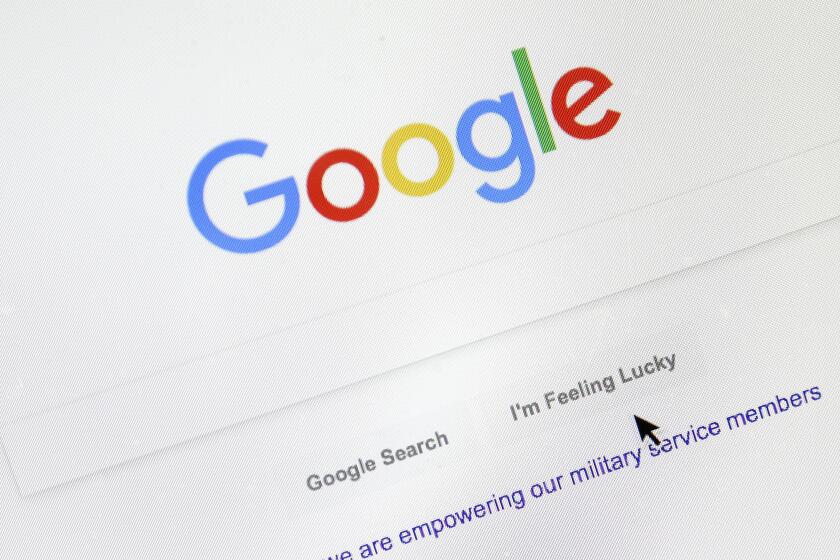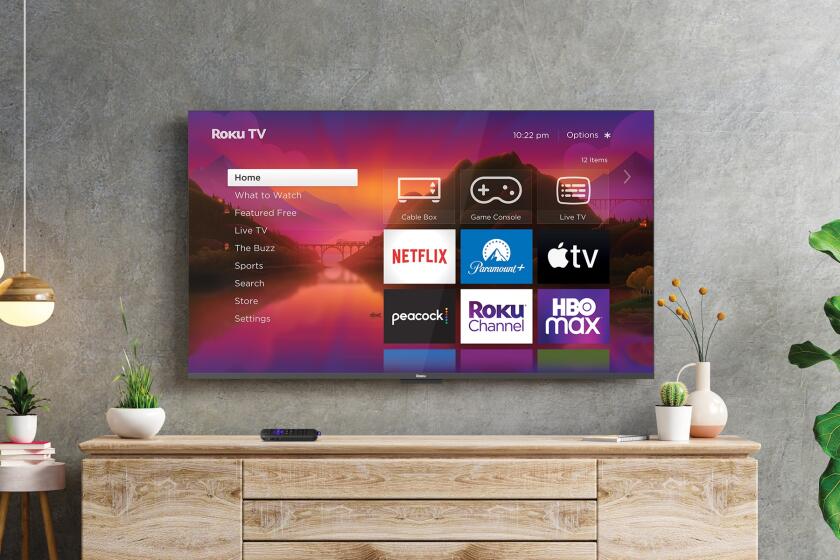Guitar Hero and Rock Band try to drum up new players
The Guitar Hero and Rock Band video games have become huge hits, generating $1.6 billion in North American sales last year from players who love jamming along with music legends. But now customers may be singing an old blues classic: “The Thrill Is Gone.”
After surging 68% in 2008, sales of music games are expected to be stagnant this year. Though new versions still do well, they don’t catch fire the way they used to.
It’s unclear whether the craze is winding down or simply being hurt by the recession. Either way, the slowdown is disappointing some of the huge corporations that have made big bets on the genre.
Viacom Inc., whose MTV division owns the rights to the Rock Band franchise, said last month that sales of Rock Band 2 were lower than it had hoped and cut into the company’s profit.
Music games are “certainly losing steam,” said Evan Wilson, senior research analyst at Pacific Crest Securities. “This year will establish the direction that this genre will go. Maybe it continues to take off. Maybe it tops out at 15% of the software market. Or it could just turn out to be a fad. I think the latter two scenarios are most likely.”
Viacom and Activision Blizzard Inc., which publishes Guitar Hero, have unveiled separate plans to keep the party going.
Activision intends to release twice as many Guitar Hero games this year as in 2008, starting with a version due out March 29 that features music from heavy metal band Metallica. The Santa Monica game juggernaut also plans to release DJ Hero at the end of the year, tapping into a new slice of music fans who are into electronica, rap and hip-hop.
“For us, this is all about expanding into a new genre of music and bringing people into games who have never previously been into music games,” said Kai Hwang, president of Red Octane, the Activision studio responsible for the Guitar Hero franchise.
Hwang, who acknowledged that sales in North America were starting to cool, said the company would make a big push in Europe and Asia by adding bands from those regions to its song lineups. He also said Activision would launch games targeted at discrete music genres, segmenting the market the same way the music industry sells records under separate labels.
The splintering of games means no individual title is likely to rival Guitar Hero III: Legends of Rock, which generated an unprecedented $1 billion in sales for a single title.
“They can still try to attract people through segmented offerings,” Wilson said. “It’s a classic consumer products strategy: Market the same product to different types of consumers.”
Viacom’s MTV Games business, which sold 2 million copies of its $189.99 Rock Band 2 instrument kits at a loss during the fourth quarter, is looking to make up the difference by selling more song tracks. It makes little or no money on the guitar controllers, drum sets and microphones, but selling music to play on those instruments is lucrative.
“As we move forward in 2009, we will be more focused on the software side of the business for Rock Band, which enjoys significantly better margins,” Viacom Chief Financial Officer Thomas Dooley said in February during an earnings call with analysts.
The company said it had sold 37 million song downloads to Microsoft Corp.’s Xbox 360, Sony Corp.’s PlayStation 3 and Nintendo Co.’s Wii game consoles.
MTV also is betting that the Sept. 9 release of its game based on music from the Beatles will help rescue the franchise from a hard day’s night battling Guitar Hero for market share. Rock Band continues to trail Guitar Hero, which enjoyed a two-year head start.
Both companies, however, are slogging through a tough economy.
“Consumers just aren’t spending as much as they used to,” Hwang said.
That’s all the more reason for Matt Cloud and Ricky Hayner to continue hosting their free Rock Band parties every Thursday night at Big Wang’s, a restaurant in Hollywood.
About 40 people turned out last week, about as many as when Cloud and Hayner started throwing their event 18 months ago.
“With the recession, people are still looking for cheap things to do,” said Cloud, a 27-year-old assistant sound editor who lives in Hollywood.
“Nothing’s cheaper than having a couple of beers and pretending you’re a rock star. People still need to have fun.”
--



